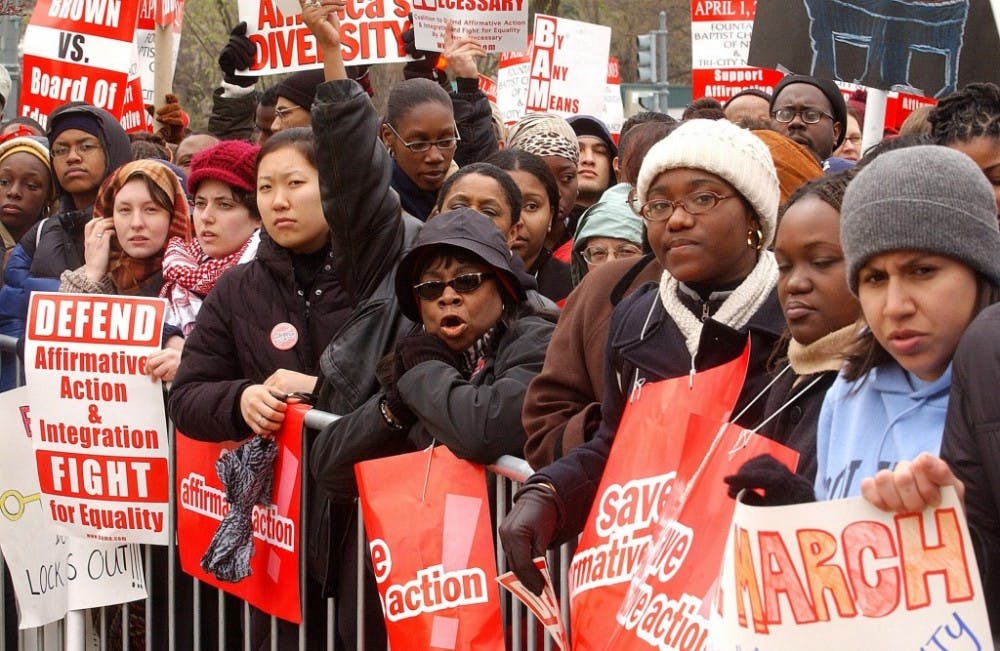“Check one: Caucasian, Hispanic, Asian, African-American, Other.” This statement can be found on almost every college application, scholarship or job application in the United States today. We as a nation claim to be more forward thinking than we were 50 years ago. We say we are above racism, and we are fair to every race.
But if we were truly a nation of equal opportunity, why should every person have to identify their race to be considered for a position?
On Wednesday, Oct. 10, the Supreme Court heard the case of Fisher vs. University of Texas. A Caucasian woman who was denied admission to the university claimed it was because of her skin color.
The eventual decision could be a groundbreaking one that overturns the racist policy of affirmative action once and for all.
Fifty years ago, when people who were not of Caucasian descent applied for anything, they were often turned down because of the color of their skin.
Therefore, the policy of affirmative action was created in order to allow more diversity in American universities and in the workforce.
Back then, the idea could be justified. It made it so potential employers or admission workers could not discriminate against a person on the basis of skin color. But today, it is being misused. Now, in order to provide diversity, there is increased potential for less-qualified candidates receiving opportunities based on the color of their skin. Does this scenario sound fair?
By saying that we still need affirmative action, we are implying that without it, one race will be automatically elevated above another. That type of outdated thinking is what is holding our country back.
Supporters of affirmative action believe the policy to be necessary due to people of African American or Hispanic descent having historically lower college enrollment rates. Furthermore, many believe that affirmative action serves as a manner of remedial compensation for the legal and social disadvantages minorities endured for decades in American society, such as substandard primary education. This is very much not the case.
We would be far better off providing better primary education for everyone, than giving disadvantaged students higher education than they are qualified for. If a student enters a college that they have not been adequately conditioned for, how is that helping them to succeed?
The past is over. As we as a nation struggle to overcome the wrongs that were committed, we are taking a step backward by committing them again.
We are all one race—the human race. We should not have to be divided into sectors of African Americans, caucasians or Latinos. We should not analyze what race statistically scores better on standardized tests or has higher college admission rates.
We do not analyze who has higher graduation rates between brunettes and blondes, nor do we analyze tall people versus short people. So why should the color of our skin be a deciding factor?
It is unfair that any ethnic group should be able to exclude others from clubs and sororities and be given higher preference in the college application process, yet if any one group dared to exclude somebody on the basis of race, they would automatically be labeled as chauvinistic and racist. Nobody should be excluded from anything. Black, white, gay, straight, male, female, “other”; we are all equal and should be judged solely on our merits and talents, not by our biological features.
Skin color has no bearing on a person’s intelligence, diligence or anything else of importance in society.
Therefore, it should not be an inquiry found on any type of application.
The people that are admitted to any given college should be the ones who have earned the highest grades, been the most involved in after school activities, completed the most volunteer work.
Affirmative action is discriminatory. Not reverse discrimination, not equal opportunity: It is discrimination in its purest form, and until we realize this and repeal the policy of affirmative action, our nation will never truly move forward.


